#dame ethel smyth
Explore tagged Tumblr posts
Note
Late for the asks but here's one: fantasy cast for an opera you haven't fantasy casted yet
okay i just decided to put my massive playlist of stuff and fantasy cast the first thing that came up, so:
dame ethel smyth’s the wreckers:
pascoe: gerald finley
thirza: sasha cooke (yes i know she’s already done the role BUT IT WASN’T FILMED)
mark: allan clayton
avis: ying fang or jacquelyn stucker
2 notes
·
View notes
Text


OTD in Music History: British composer and suffragist Dame Ethel Smyth (1858 - 1944) -- the first female composer ever to be granted a damehood (in 1922) -- is born in London. Few figures in musical history have led a more colorful life than Smyth. After a bitter fight with her father over her desire to pursue music, Smyth was allowed to study composition at the Leipzig Conservatory. Although she left after only a year (disillusioned with what she considered to be the low standard of teaching), her attendance there put her into contact with luminaries including Johannes Brahms (1833 - 1897), Pyotr Tchaikovsky (1840 - 1893), Antonin Dvorak (1841 - 1904), Edvard Grieg (1843 - 1907), and Clara Schumann (1819 - 1896). Upon her return to England, she also formed a friendship with Sir Arthur Sullivan (1842 - 1900) in the final years of his life. Smyth's extensive body of work includes two notable operas: "The Wreckers" -- which is considered by some critics to be the most important English opera composed during the period between Henry Purcell (1659 - 1695) and Benjamin Britten (1913 - 1976) -- and "Der Wald" (1903), which for more than a century stood as the only opera by a woman composer that had ever been produced at New York's Metropolitan Opera (until Kaija Saariaho's "L'Amour de loin" was premiered in 2016). Smyth’s final major completed work was a vocal symphony entitled "The Prison" (1931); by the mid-1930s, she had gone almost completely deaf. Smyth was also a historically important British suffragist (who served two months in prison for her political activism) and she was openly gay at a time when that was highly unusual. At age 71, she fell in love with famed writer Virginia Woolf (1882 - 1941). Woolf, nearly 25 years her junior, was both alarmed and amused by the situation, comparing it to “being caught by a giant crab." The two women eventually settled into a close platonic friendship. PICTURED: A 1931 autograph letter written and signed by Smyth to a friend, concerning musical activities.
#Ethel Smyth#Smyth#Dame Ethel Smyth#composer#classical composer#classical music#music history#women's suffrage#piano#chamber music#orchestral music#choral music#opera#music#aria#diva#prima donna#chest voice#classical musician#musician#Ballet#Overture#Serenade#Suite#Intermezzo#Prelude#Concerto#violin#Sonata#songs
1 note
·
View note
Text
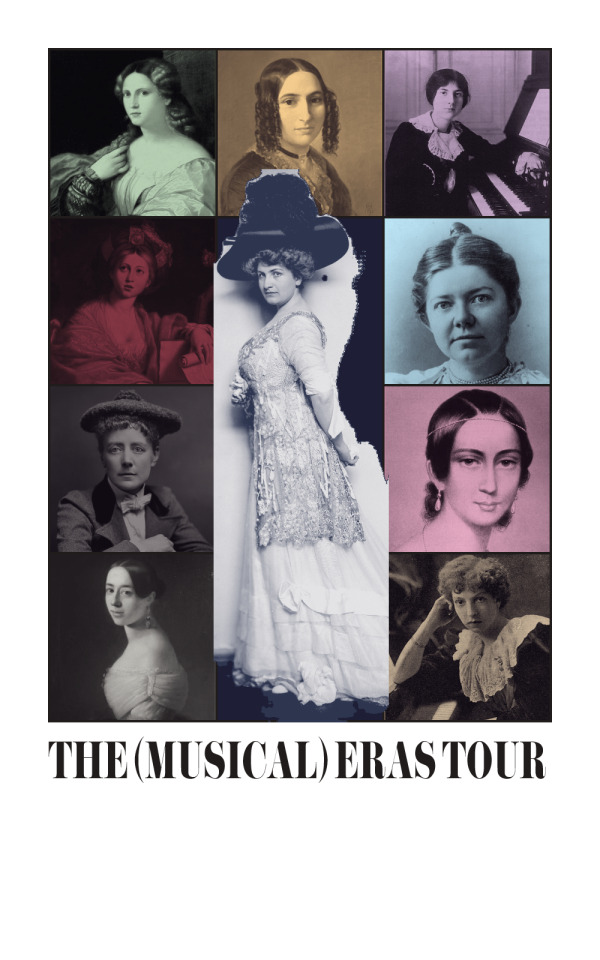
oops i did it again
I made something really silly wanna see it
#for the LADIES#debut = francesca caccini for the Some Guy's Daughter Who's More Talented Than Him energy#(taylor is a nepo baby don't forget xoxo)#fearless = fanny mendelssohn hensel wholesome hits all around#speak now = lili boulanger. award winning prodigal talent forever frozen in time because she died so tragically young.#on the cusp of growing up but never getting there#red = barbara strozzi. baroque babe who was caught in her FEELS. lagrime mie = all too well tbh#1989 = amy beach bc she made the most hits. the year's at the spring ah love but a day new romantics etc etc#reputation = dame ethel smyth because she truly did not give a FUCK#lover = clara schumann. conflicted on this bc clara was a bomb ass genius and more than just her love songs but. liebst du um schonheit.#ruckert poetry = lover lyrics#folklore = pauline viardot bc i voted her most likely to fuck off and write poetry in the woods. the diva retreats to write some stories.#evermore = cecile chaminade her work just has that 20th century esoteric romantic je ne sais quoi. she has the vibes#midnights = alma mahler because alma acted like she gave no fucks but she wouldn't have done all that if she hadn't given so many fucks.#she's bejeweled she dresses for revenge she's high infidelity she's the anti-hero she's just askin questions#librarian blogging
10 notes
·
View notes
Text
yall im writing a musical about Dame Ethel Smyth, a classical composer and suffragette that randomly had affairs with Emmeline Pankhurst and Virginia Woolf (?)
is this something the people are interested in? Would you watch/listen?????
#the music would feel like old timey west side story music bc im planning on using themes from her music#imma call it “the wrecker”#what do we think?#ethel smyth#lesbian#bisexual#bi women#historical women#feminism#musicals
3 notes
·
View notes
Video
youtube
Ethel Smyth Serenade in D
Crazy this amazing dame is new to me, she should be much more famous. Amazing work! interesting writing on this YT upload as well. https://en.wikipedia.org/wiki/Ethel_Smyth #OdedFriedGaon #OdedMusic #OdedWeekendPlaylist #OdedLengthySonicMasterpieces
0 notes
Link
Dame Ethel Smyth (1858 – 1944) Composer, suffragette, sportswoman and resident of Surrey
3 notes
·
View notes
Text
*****DAY 10*****
Today is a very exciting day of Pride Month - Composer’s Edition because we’re going to be talking about a VERY special composer:
Dame Ethel Smyth!!!
youtube
Ethel Smyth was incredible, a feminist, and very lesbian. These things are not mutually exclusive. People weren’t so pleased that here she was an English lady writing music considered “masculine.” “Well, f*ck you,” Ethel Smyth probably replied to those critics because she kept doing it anyways. Her opera “The Wreckers” is said to be the greatest English opera between Purcell and Britten. Another one of her operas, Der Wald, was UNTIL LAST YEAR the only opera performed at the Met composed by a woman. In politics, she was an important figure in the suffrage movement and in 1911, her anthem “March of the Women” became the song of feminism. She had several affairs with women, the most important being Virginia Woolf and Emmeline Pankhurst. Throughout her life she was involved in several “unwomanly” pursuits such as tennis and horse-riding. She unfortunately lost her hearing and ceded composing later in life but then turned to writing. Her “masculine” compositional style can be seen in the above portion of her Cello Sonata, a perfect example of what kind of composer Smyth was because of its sheer awesomeness.
3 notes
·
View notes
Text

Dame Ethel Mary Smyth DBE (1858 – 1944) was an English composer and a member of the women's suffrage movement. Her compositions include songs, works for piano, chamber music, orchestral works, choral works and operas.
In 1910, Smyth joined the Women's Social and Political Union (WPSU), which agitated for women's suffrage, giving up music for two years to devote herself to the cause. She accompanied the charismatic leader of the WSPU, Emmeline Pankhurst, on many occasions, and her "The March of the Women" (1911) became the anthem of the suffragette movement.
Smyth had several passionate affairs in her life, most of them with women.
28 notes
·
View notes
Note
Hi! Happy Pride! Have you considered doing an episode on lesbian composer and suffragette Dame Ethel Smyth?
Thanks for the message and happy pride! Dame Ethel is indeed on our suggestions list.
-Alice
18 notes
·
View notes
Text
The Wreckers (Bard SummerScape, 2015): Reactions, Part II
annnnnnnnnnnnnnnd we’re back!
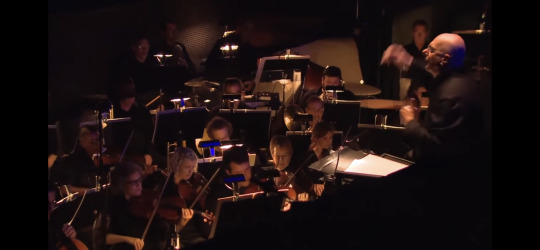

this is so prettyyyyyyyyyyyyyyyyyyyy (and atmospheric)

it would be so cute if these two got together

Area Trouser Role Is Not Having A Good Day

once again: GAAAAAAAAAAAAAAY

just gonna leave this here
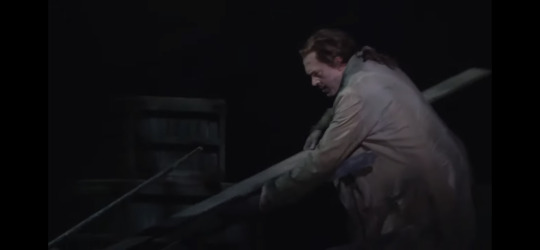
oh snap so pascoe ISN’T making the fires
which i didn’t think he was given how much of a dick he was being in act one about it but now we know for sure it’s mark, who’s the one who likes thirza, who is pascoe’s wife, so in short…OPE!
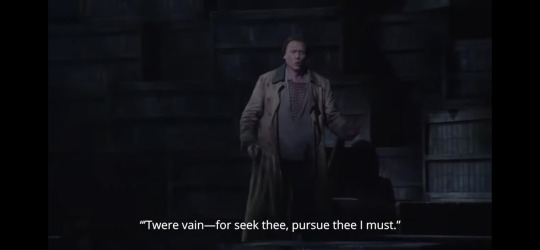
i love when Songs Are Metaphors
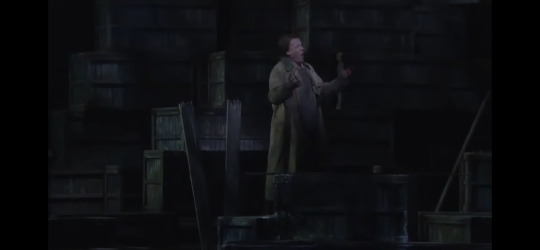
this is such a good aria

oh boy AND THIRZA IS HIS ACCOMPLICE SHIT IS GONNA GO DOWN
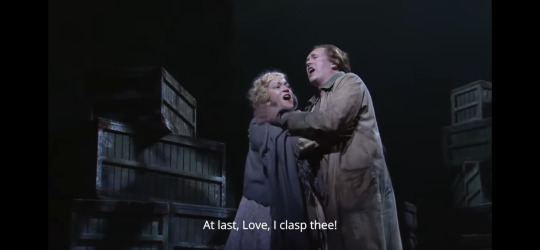
awwwwwwwwwwwwww

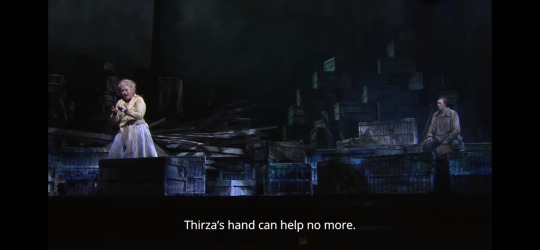
aggggggggggggggggggggggh she deserves so much better

once again: Area Tenor Does Not Listen

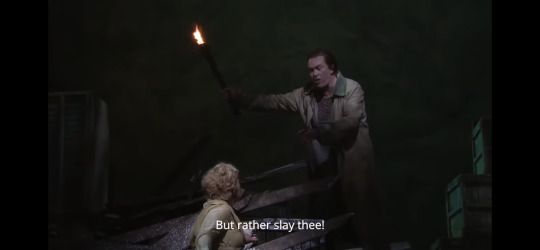
i’m hoping this isn’t foreshadowing but instead just a weak adaptation of the original french libretto because this is also out of character with everything mark has done so far
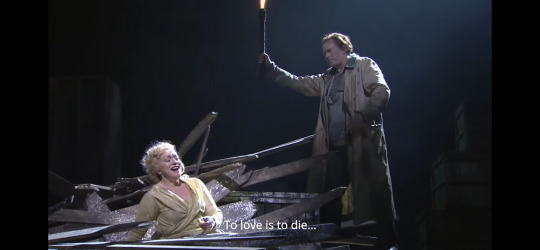
yes because you’re in an opera and i don’t see this one ending well for either of you

“friend”. sure. that’s what you two are. just friends.
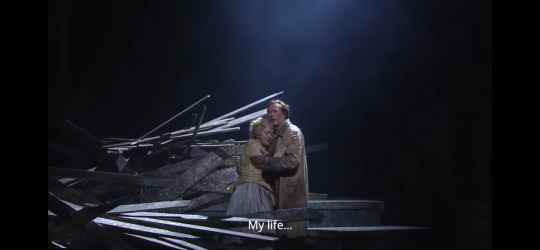
this duet is GORG

YES PLEASE RUN AWAY TOGETHER

HEY HORN OF DOOM STOP RUINING THE MOMENT

MAKE THE FIRE MAKE THE FIRE MAKE THE FIRE I LOVE YOU TWO

YEAAAAAAAAAAAAAAAAAAAAAAAAH

AWWWWWWWWWWWWWWWWWWWW

FUCK
no seriously i literally yelled “FUCK”

AND THAT’S HOW THE COOKIE CRUMBLES
#opera#opera tag#the wreckers#opera liveblog#dame ethel smyth#mark and thirza are so fucking valid#good on them for running away together#this is so gooooooooood
6 notes
·
View notes
Text

Happy Birthday, Mme. Johanna Gadski. (Picture of her as Isolde).
Johanna Gadski studied singing at the Stettin High School with Anna Schröder-Chaloupka and when still very young was engaged by the Kroll Opera in Berlin, making her stage debut there in 1889. This was followed by engagements in Stettin, Mainz and Bremen as well as Berlin; her repertoire during this period included Agathe / Der Freischütz, Marguerite / Faust, Pamina / Die Zauberflöte, Berthe / Le Prophète, Donna Elvira / Don Giovanni and parts in the comic operas of Marschner and Lortzing. She also took the role of Bedura in d’Albert’s first opera, Der Rubin, which she sang with the composer conducting. Having married Hans Tauscher, a lieutenant in the German army, in 1892, Gadski had built up enough experience by 1894 to begin to appear internationally, which she did with a concert tour of Holland that year.
She was then invited to tour the USA with the Damrosch Opera Company during 1895 and 1896, making her debut in New York as Elsa / Lohengrin (1895) and creating the role of Hester Prynne in Damrosch’s opera The Scarlet Letter (1896). Other roles included Micaëla / Carmen and Marzellina / Fidelio. She toured again with the Damrosch Company during 1898 and 1899 before appearing for the first time at the Royal Opera House, London as Elisabeth / Tannhauser in 1899. This was followed by her successful debut at the Bayreuth Festival as Eva / Die Meistersinger von Nürnberg.
In December 1899 Gadski made her debut with the Metropolitan Opera, substituting as Elisabeth in Philadelphia. Two weeks later, at the beginning of 1900, she first appeared in New York with the company as Senta / Der fliegende Holländer. She quickly became a key member of the Metropolitan Opera, singing Sieglinde / Die Walküre, Brünnhilde / Der Ring des Nibelungen, Elsa and Eva, together with more varied roles including the title part in Aida, Amelia / Un ballo in maschera, Santuzza / Cavalleria rusticana, Valentine / Les Huguenots, the Countess / Le nozze di Figaro, Micaëla, Donna Elvira and Pamina, as well as Röschen in the first performance of Dame Ethel Smyth’s Der Wald (1903).
Having left the Met in 1904 following a dispute over her salary, Gadski undertook extensive concert tours of the USA during 1905 and 1906. In Europe she studied Isolde / Tristan und Isolde with Lilli Lehmann, as well as singing at the Salzburg Festival in 1906 as Donna Elvira opposite Lehmann’s Donna Anna and in 1910 as Pamina opposite Lehmann’s First Lady. Financial matters resolved, she returned to the Met as Isolde in February 1907 and remained a valued member of the company until 1917, singing broadly the same parts as before, as well as Eurydice / Orfeo ed Eurydice (under Toscanini, 1909), Agathe and Leonora / Il trovatore.
In 1917, following America’s entry into World War I, a ban was placed upon German music and musicians in the US. Nonetheless Gadski remained in that country, but did not sing again until 1921 when she gave a rapturously received recital at Carnegie Hall, followed by a coast to coast concert tour which also took in Canada. She became an American citizen in 1925, returning to the operatic stage in 1928 with Die Walküre in Washington. From 1929 onwards Gadski toured America annually with various companies performing German opera, singing Brünnhilde, Isolde and Senta. She intended to continue such touring, but was killed in a motor accident in Berlin.
#Johanna Gadski#Gadski#dramatic soprano#opera#classical music#music history#bel canto#composer#classical composer#aria#classical studies#soprano#Richard Wagner#Wagner#Tristan und Isolde#Metropolitan Opera#Covent Garden#Bayreuth Festival#Royal Opera House#diva#prima donna#maestro#classical musician#classical musicians#musician#musicians#classical history#historian of music#history#music
2 notes
·
View notes
Text
Currently obsessed with English composer Dame Ethel Smyth. This is her most acclaimed work:
youtube
She was also an activist in the women’s suffrage movement, and wrote this song, which became basically the anthem of the movement (lyrics):
youtube
Apparently, she had her fellow inmates sing this when she was in prison, conducting with her toothbrush! Oh, and did I mention whe was queer? Later in life, she suffered from hearing loss and increasingly turned from composing to writing books, which I now kind of want to read...
4 notes
·
View notes
Text
August 5, Birthday of Betsy Jolas (b. 1928)
August 5, Birthday of Betsy Jolas (b. 1928)
Born in Paris between WWI and WWII, Jolas grew up in an enviable milieu. Her mother was a well-known translator and her father founded the literary magazine, “transition,” which published James Joyce’ Finnegan’s Wake as a “Work in Progress.” Her studies at the Paris Conservatory were interrupted by WWII and she and her family decamped to the US, where she completed her studies at Bennington.…
View On WordPress
#Bela Bartok#Betsy Jolas#Cereal that&039;s shot from guns#Classical Music#Claude Debussy#Composers#Dame Ethel Mary Smyth#Darius Milhaud#Debussy#Gamelan#Hungarian Composers#Igor Stravinski#Kodaly#Legends#mallarme#Mozart#Music#Musicians#Olivier Messiaen#Orchestra#Performers#Poetry#Prélude à l&039;après-midi d&039;un faune#Prelude to the Afternoon of a Faun#Quotes#Stravinsky#symbolism#Szőnyi Erzsébet#Toccata and Fugue in D Minor#Virtuoso
1 note
·
View note
Text
La vida musical de Virginia Woolf
Una mirada a la influencia de la música en la vida de la escritura, su vida y creencias.

‘I always think of my books as music before I write them’
Es claro, por sus novelas y ensayos, que Virginia Woolf (1882-1941) fue una mente musical. Su escritura está repleta de referencias a músicos, públicos y convenciones sociales relacionadas con el mundo de la música. Algunos de los ejemplos más renombrados son compositores de la talla de Bach, Beethoven, Mozart y Wagner, además de mencionar a los músicos amigos suyos Dame Ethel Mary Smyth, Nadia Boulanger, Ralph Vaughan Williams y Bruno Walter.
Habiendo nacido en Londres, Woolf adquirió una formación básica musical desde muy joven. Continuó escuchando música a lo largo de toda su vida, manteniendo un muy organizado registro de cada una de sus experiencias en eventos musicales y escribiendo sus relatos al escuchar, por horas, piezas clásicas de gran importancia.
Su historia corta “Una melodía simple” explora las complejidades y retos de la comunicación a través del personaje principal, George Carslake, quien en la luz de una fiesta aprecia una pintura de manera muy particular.
“Al menos al señor Carslake le parecía muy bella porque, mientras estaba de pie en el rincón, desde donde podía admirarla, tenía el poder de componer y de apaciguar su mente. Él sentía que la imagen le daba proporción a sus emociones, ¡con lo desperdigadas y desordenadas que estaban en una fiesta como esta! Era como si un violinista estuviera tocando una vieja melodía inglesa, perfectamente serena, mientras la gente apostaba y tropezaba, maldecía, hurtaba y rescataba a quienes se estuvieran ahogando, demostrando increíbles –aunque innecesarios—raptos de habilidad. Él mismo no podía dar un espectáculo.“
En su novela “Los años” hay una mención de una presentación especial de la ópera Siegfried Idyll, siendo utilizada en el relato como una fuente de reafirmación de la simpatía judía de sus protagonistas en contraste con el fuerte antisemitismo del compositor.
youtube
En su primera novela jamás escrita "Fin de viaje” se muestra a la protagonista tocando una sonata de Beethoven en el piano — una que usualmente solía pensarse como demasiado difícil para las mujeres, aumentando así sus conexiones con el feminismo.
youtube
Más adelante afianzaría importantes lazos con la compositora Dame Ethel Smyth, una reconocida “suffragette”, feminista por el activismo radical y activista por la equidad de género, quien estudió música a pesar de la desaprobación de su padre.
youtube
Y en “Noche y día”, las referencias a Mozart son el instrumento perfecto para criticar los cimientos de la sociedad profundamente patriarcal de esos tiempos. Para ello, encuentra necesario hacer que Cassandra Oatway, la prima de la protagonista, toque la flauta exquisitamente y tenga conversaciones profundas mientras la música suena de fondo.
youtube
No cabe duda de que Virginia Woolf cultivó a lo largo de sus años un enorme amor por la presentación musical y empezó a considerar la relación estrecha entre la música, el lenguaje, la expresión y la comunicación. Influenciada por todos estos compositores es que Woolf soñó modelar la forma de expresión total de la música dentro de sus letras. Las referencias musicales podían ilustrar su relato en aspectos que no podían ser expresados por el poder de las palabras por sí mismas.
Para Virginia Woolf, entonces, la música poseía un tipo de proximidad esencial hacia la verdad, la realidad. Y no solo eso, sino que significó un puente poderoso que le permitió comentar sobre la sociedad mediante increíbles alusiones.
3 notes
·
View notes
Text
youtube
Dame Ethel Smyth - The Prison, Part II. The Deliverance: Death calls him (The Last Post) - Gloring, he obeys the summons "For years you have been conning your lesson" ·
James Blachly · Experiential Orchestra · Dashon Burton · Sarah Brailey · Experiential Chorus
0 notes
Photo

Amy Katherine Browning (1881-1978) - Portrait of Dame Ethel Mary Smyth
Oil on canvas. 16.9 x 13 inches, 43 x 33 cm.
Estimate: £600-800.
Sold Rosebery’s, London, 11 Feb 2020 for £550.
Both the sitter, the composer Dame Ethel Smyth, and the artist were prominent members of the women’s suffrage movement. Smyth, in 1910, composed the music to The March of the Women (lyrics by Cicely Hamilton). Browning was a friend of Sylvia Pankhurst and created illustrations for the Woman’s Dreadnought.
17 notes
·
View notes